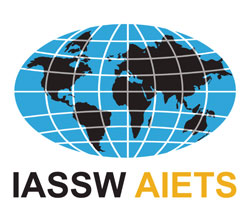IASSW Statement on recent developments in Turkey
IASSW and EASSW have been monitoring recent developments in Turkey closely. Our organisations and the wider social work community consistently and unequivocally condemn military coups and attempts to limit civil liberties, and curtail human rights.
The attempted coup de etat in Turkey, was appallingand dangerous. Perpetrators need to be held accountable in line with the principles of International and Turkish Law and in the spirit of the Human Rights Conventions.
We are also very concerned about the subsequent response from the Turkish government and its potential impact on Higher Education. International media have already reported the forced resignation of all Deans from both public and private universities, the blanket ban of academics travelling abroad and the summarily dismissal of 15,200 Ministry of Education employees. These extraordinary measures could pose a significant threat to academic freedoms and freedom of speech.
In Turkey, there are currently 42 active social work departments, several hundred social work academics and well over 25,000 students. It is also estimated that approximately 30,000 have graduated from social work schools and the majority of them are employed in the public and independent sectors making a remarkable contribution to the Turkish society. Social Workers possess crucial skills, knowledge and determination to contribute towards socially just societies, often under very challenging political circumstances. Their knowledge and commitment to social justice needs to be cherished and valued.
We are in touch with our colleagues in the country and we will continue monitoring the situation very closely in order ensure that social work educators are supported and they can continue contributing to education and research in line with the values, principles and ethics of our profession.
The current challenges facing Turkish and European societies require more academic freedom and a broadening of safe spaces for debate. Social workers can play a crucial role in facilitating these inclusive processes in defense of human rights and democracy.





